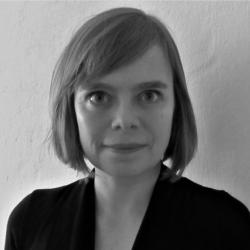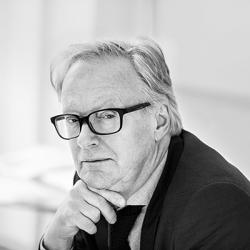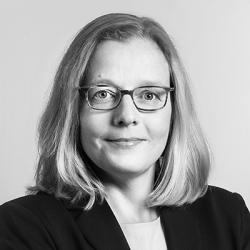ARCHITRAVE – Art and Architecture in Paris and Versailles in Accounts by Baroque-Era German Travellers
ARCHITRAVE – Art and Architecture in Paris and Versailles in Accounts by Baroque-Era German Travellers
ARCHITRAVE Website
Bi-national French-German project ANR-DFG
Art and Architecture in Paris and Versailles in Accounts by Baroque-Era German Travellers (ARCHITRAVE)
The project aims at scrutinizing the content of six substantial German travel accounts dating from 1685 to 1723, the earliest hitherto known, in which profound and reasoned judgements and opinions on French art and architecture have been rendered. These manuscripts and printed documents out of German public collections are partly unpublished and have never been investigated as a whole. The following sources will be treated:
- Christoph Pitzler (1657-1707): Travel journal, 1685-1688 (Stiftung Preußische Schlösser und Gärten Berlin-Brandenburg, Potsdam; photos from a lost original)
- Ferdinand Bonaventure Graf Harrach (1637-1706): Travel journal, 1698 (Österreichisches Hauptstaatsarchiv, Vienna; manuscript)
- Lambert Friedrich(1668-1733) and Christian Heinrich Corfey (1670-1652): Reisetagebuch, 1698-1699 (ed. by Helmut Lahrkamp, Münster, Aschendorf, 1977)
- Christian Friedrich Gottlieb von dem Knesebeck (before 1680 - after 1727): Journal relating a travel to France, around 1711-1713 (Universitätsbibliothek, Rostock; manuscript)
- Leonhard Christoph Sturm (1669-1719): Architectonische Reise-Anmerkungen [1699], 1719 (Getty Research Institute, Los Angeles, Special collections; printed book)
- Johann Balthasar Neumann (1687-1753): Letters from his travel to France, 1722/1723 (Würzburg, Staatsarchiv; modern book editions and original manuscript)
The project will make these documents available in a richly commented, comfortably researchable digital portal, aiming at a multi-layered linkage of text and image, and targeting both an academic and non-academic public in France and the German-speaking countries. Hence, the ambitions of the joint German-French research group are twofold: to merge the knowledge of French specialists on Paris and Versailles under Louis XIV with the acquaintance of their German colleagues with the chosen sources, and to demonstrate the capacities of a computer-based treatment of the texts to generate innovative and reliable ways of exploring and researching them.
The core objective of the project is to contribute to a better understanding of the modes of appreciation of an alien culture in the baroque era. Even if drawn by an inquisitive admiration, German travellers have shown long before the height of the Enlightenment a critical distance towards French art and culture. It has not yet been investigated enough to what extent the contact with French culture contributed to the development of such a faculty of independent judgement, stabilizing (and even reinforcing) inner German schemes of apprehension. Moreover, the sceptical attitude commonly discernible in these documents compared here for the first time seems to have been a fertile soil for the development of a new aesthetic paradigm at the turn of the century. Indeed, artistic eclecticism, which had emerged in the Renaissance, still prevailed. It based judgements on art on the ability of the artist to imitate and, at the best, to emulate universally appraised historical samples. But around 1700, first signs of a loosening of this paradigm became discernible, giving more space to an appreciation of individual achievements and creative genius. The part German travellers to France played in this subversive and emancipatory process will have to be investigated.
Also in regard to their literary qualities and linguistic specificities, the texts to be analysed here seem to belong to a transitory period. Research has hitherto held the view that only since the height of the Enlightenment the abilities of the travellers to formulate individual appraisals of art works, implicating a deliberately private and partial point of view, emerged. But even if in the late 17th century the traditional descriptive mode still prevailed, aiming at an allegedly objective and integral account of the art works seen, one already observes a growing ability of the travellers to focus on single aspects following their individual interests, and to express their emotions sensed.
It is obvious that the travel accounts constitute precious factual sources too. They will not only help to better understand the appearance of numerous buildings and their interior decorations modified or destroyed by time, as well as their contemporary uses and functions. They will also provide information about the accessibility of certain fortifications, palaces, gardens, etc. and the permission to study them. The cross-case analysis of the sources can give precious indications about the personal networks tourists had to mobilise to organise their visits.
In conjunction with the scientific investigation, an enriched and interactively searchable bilingual digital critical edition of the six sources will be produced via Open Access. This research portal will be accompanied by a web space for the wider public that will be created on the Palace of Versailles website.
Partner institutions of the project
- the Philipps-Universität Marburg
- the Centre de recherche du château de Versailles (CRCV)
- the Niedersächsische Staats- und Universitätsbibliothek Göttingen (SUB)
- the Deutsches Forum für Kunstgeschichte / Centre allemand d’histoire de l’art (DFK) in Paris
Former research assistant for the project at DFK Paris
Thorsten Wübbena M.A., Head of department - Digital Humanities
Angela Göbel M.A., Scientific Associate
Byambasuren Altansukh, Intern, Department Digital Humanities
Franziska Kaun, PIntern, Department Digital Humanities
Éléonore Harz, Intern, Department Digital Humanities
Christina-Marie Lümen, Intern, Department Digital Humanities
Blog: https://architrave.eu/ (only available in german and french) and https://architrave.hypotheses.org/
Budget: 498.037 Euros
Leadership
Researcher
Research Infrastructures
Person in charge
Partner
Investors











